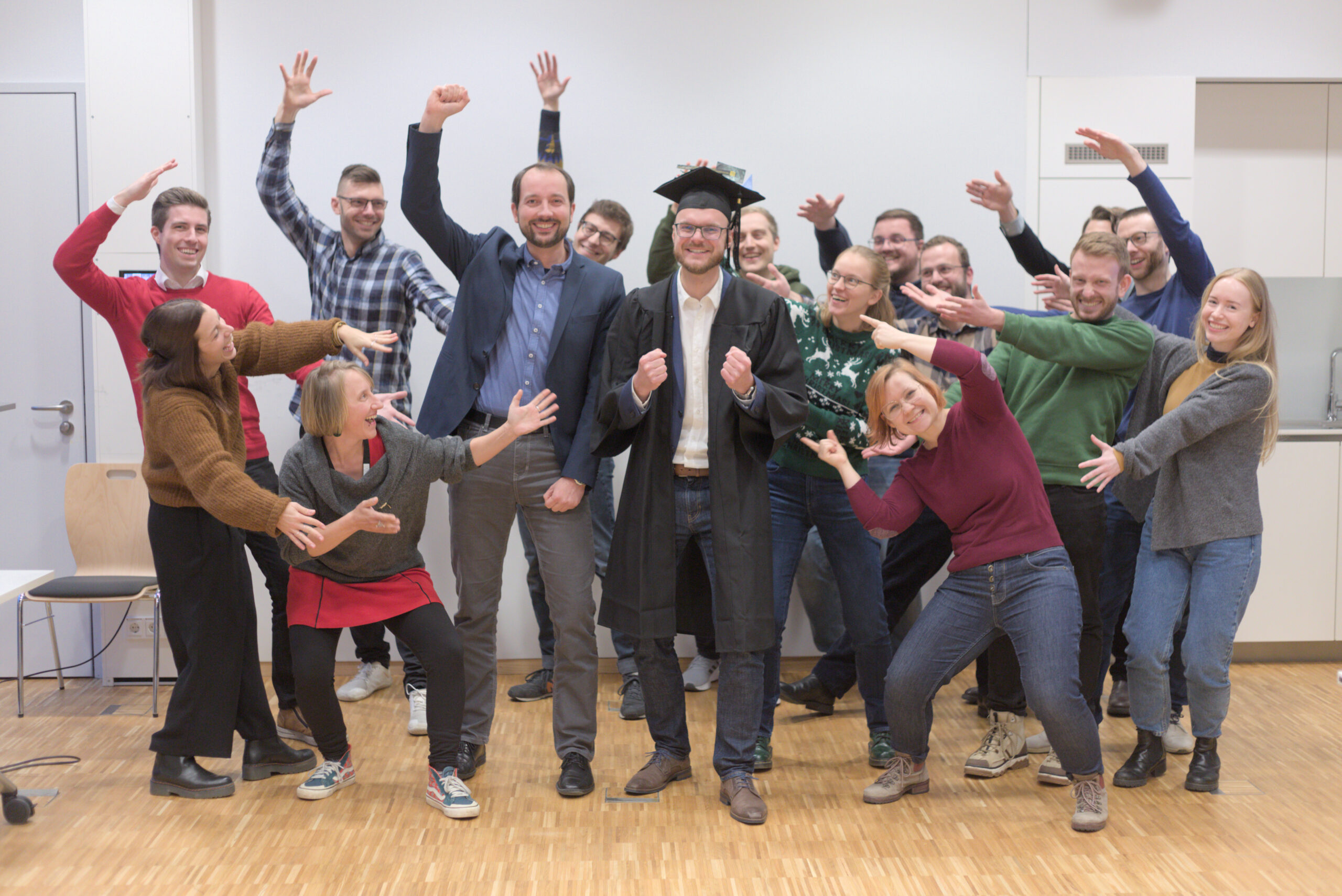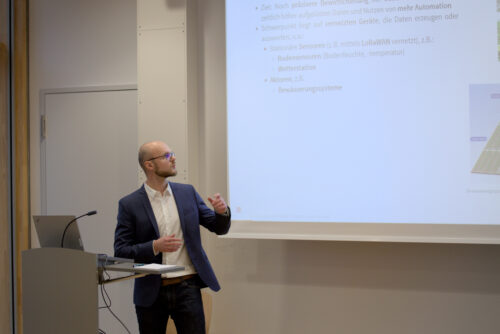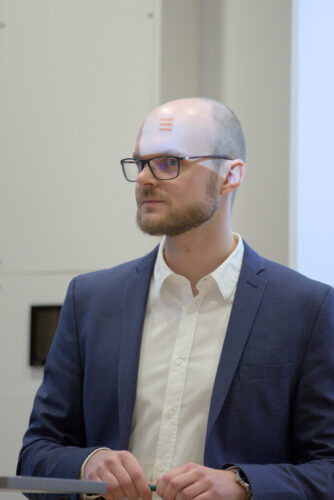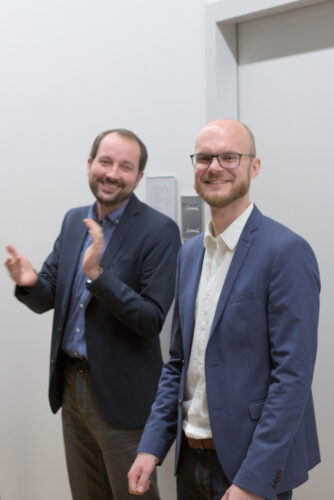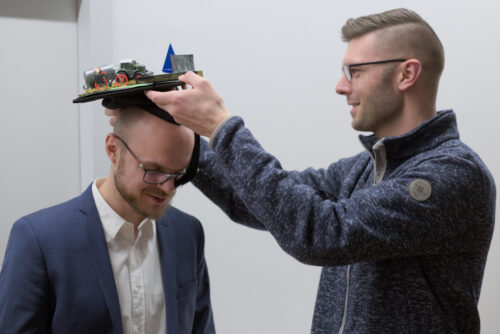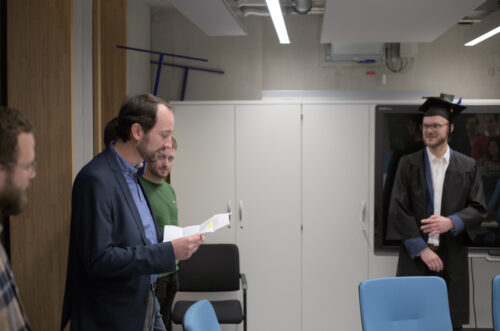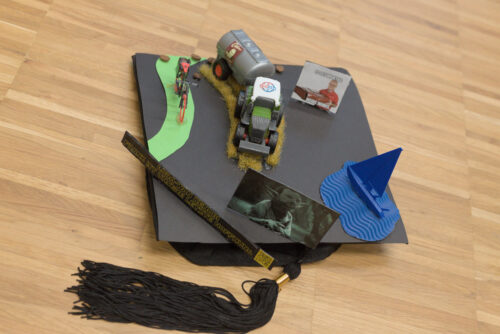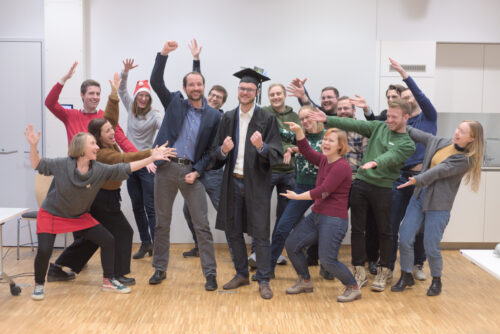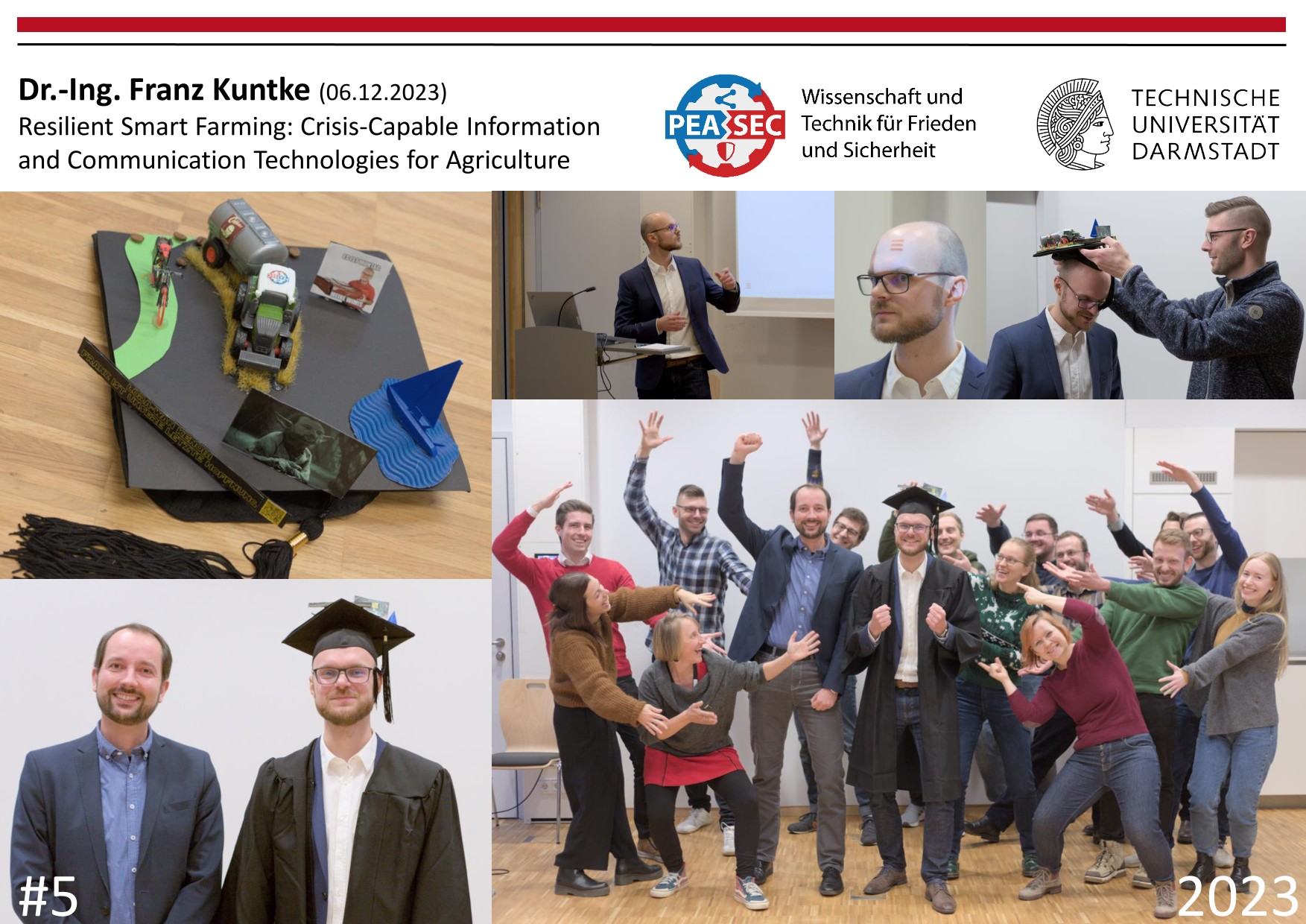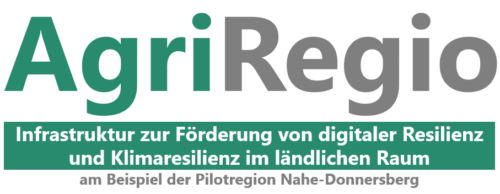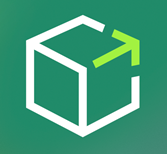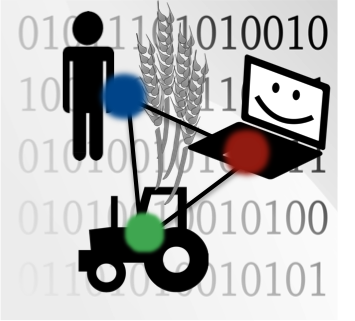Franz Kuntke hat am Mittwoch, den 06. Dezember 2023 mit seiner Disputation den letzten Teil auf dem Weg zum „Dr.-Ing.“ am Fachbereich Informatik der Technischen Universität Darmstadt bestanden. Seine Dissertation “Resilient Smart Farming: Crisis-Capable Information and Communication Technologies for Agriculture” wurde von Prof. Dr. Dr. Christian Reuter als Betreuer und Erstreferenten und Prof. Dr.-Ing. Jörg Dörr (Digital Farming, Rheinland-Pfälzische Technische Universität Kaiserslautern-Landau) als Korreferenten begutachtet und dem Fachbereich Informatik zur Annahme empfohlen. Die mündliche Prüfung fand unter dem Vorsitz von Prof. Dr. Felix Wolf (Parallele Programmierung) statt. Neben den beiden Referenten waren Prof. Dr.-Ing. Matthias Hollick (Sichere Mobile Netze) sowie Prof. Dr. Zsolt István (Verteilte und vernetzte Systeme) als weitere Prüfer beteiligt.
Das gesamte PEASEC-Team gratuliert Dr.-Ing. Franz Kuntke herzlich zu der erfolgreichen Verteidigung seiner Doktorarbeit!
Resilient Smart Farming: Crisis-Capable Information and Communication Technologies for Agriculture
As in many sectors, agriculture is experiencing a continuous digitalization, i.e. an increase in data-driven technologies used. In contrast to companies of other critical infrastructures – e.g. energy or telecommunication – a typical farm is comparatively small and often run as a family business. Accordingly, the demands on farming technology, its implementation, and regulations are different in many terms. Also, the circumstances that influence crisis risks and crisis management are different in agriculture – and as digitalization introduces new potential risks, this process should be critically reviewed. But research in the area of farming equipment mostly concentrates on positive aspects of modern technologies. The current state-of-the-art approaches for agriculture are often referred under terms smart farming and agriculture 4.0, that incorporates more precise cultivation with less (manual) effort. But such new agriculture technology developments usually lack an assessment about its impact on the sector’s resilience and dependencies on other infrastructures. The research domain of disaster and risk sciences mostly concentrates on other topics, apart from agriculture, and the resilience research in agriculture itself is currently intensifying, but focusing more on problems resulting from climate and social change. For this reasons it remains unclear, how digitalization impacts resilience of the food production and food safety. Therefore, it is not well researched which technological developments may lead to undesired effects in the future. And how modern systems should be designed to allow for both, positive impacts on efficiency, and prevention of negative effects in terms of reduced resilience capacities, is also not answered by literature yet. Aim of the present work is to close this research gap in the interplay between agriculture, digitalization and resilience.
To answer the question to what extent current technologies used by farmers are at risk of failure, the dissertation first presents a snapshot of the resilience state of agricultural companies and their used technologies. This involves interviews with stakeholders, mainly farmers, as well as surveying security issues of the LoRaWAN protocol, a transmission technology especially useful for agricultural Internet of Things. Which desires of farmers regarding software focusing on aspects of business continuity and secured operations exist, is another open question, that is also answered with empirical methods, mainly focus groups and usability tests. Then the rise of Internet of Things in agriculture raises another question, whether such technologies acquired for smart farming could also have benefits for resilience against internet-connection-lost situations. This question is answered by empirical evaluation of LoRaWAN range characteristics in agricultural landscapes, as well as artifact generation for resilient communication channels on top of LoRaWAN transmission devices.
Several findings are derived from the conducted research: There is a lack in understanding how strong the used tools in agriculture are dependent on Information and Communications Technology, and many tools does require a working internet connection. Additionally, information technology used by agricultural companies has security issues, as in other domains, which must be considered at best in the design phase of technology by system engineers, but should be at the latest a decision criteria when users choose a new technology. Based on these findings, developments and evaluations of new software approaches are presented: Derived design criteria and own system designs, that allow for modern data-driven business operations, including Internet of Things integration based on LoRaWAN. The developed solutions show an increase of resilience capacities by enhancing the communication possibilities in crisis situations. The thesis points out, how the state of resilience in agriculture of developed countries is today, and what to expect from current generation technology. Additionally, it builds new concepts and software artifacts as an example, how disaster-capable features can be integrated into information management systems for a more crisis-proof future of farm operations.
Ausgewählte Veröffentlichungen im Rahmen der Promotion:
How Would Emergency Communication Based on LoRaWAN Perform? Empirical Findings of Signal Propagation in Rural Areas
Proceedings of Information Systems for Crisis Response and Management (ISCRAM) .
[Download PDF]
Rural Communication in Outage Scenarios: Disruption-Tolerant Networking via LoRaWAN Setups
Proceedings of Information Systems for Crisis Response and Management (ISCRAM) .
[Download PDF]
GeoBox: Design and Evaluation of a Tool for Resilient and Decentralized Data Management in Agriculture
Behaviour & Information Technology . doi:10.1080/0144929X.2023.2185747
[Download PDF]
LoRaWAN Security Issues and Mitigation Options by the Example of Agricultural IoT Scenarios
Transactions on Emerging Telecommunications Technologies (ETT) ;33(5):e4452. doi:10.1002/ett.4452
[Download PDF]
Resilience in Agriculture: Communication and Energy Infrastructure Dependencies of German Farmers
International Journal of Disaster Risk Science (IJDRS) ;13(2):214–229. doi:10.1007/s13753-022-00404-7
[Download PDF]
Reliable Data Transmission using Low Power Wide Area Networks (LPWAN) for Agricultural Applications
Proceedings of the 16th International Workshop on Frontiers in Availability, Reliability and Security (FARES 2021) . doi:10.1145/3465481.3469191
[Download PDF]
The Role of Privacy in Digitalization – Analysing the German Farmers‘ Perspective
Proceedings on Privacy Enhancing Technologies (PoPETs) ;2021(3):334–350. doi:10.2478/popets-2021-0050
[Download PDF]

